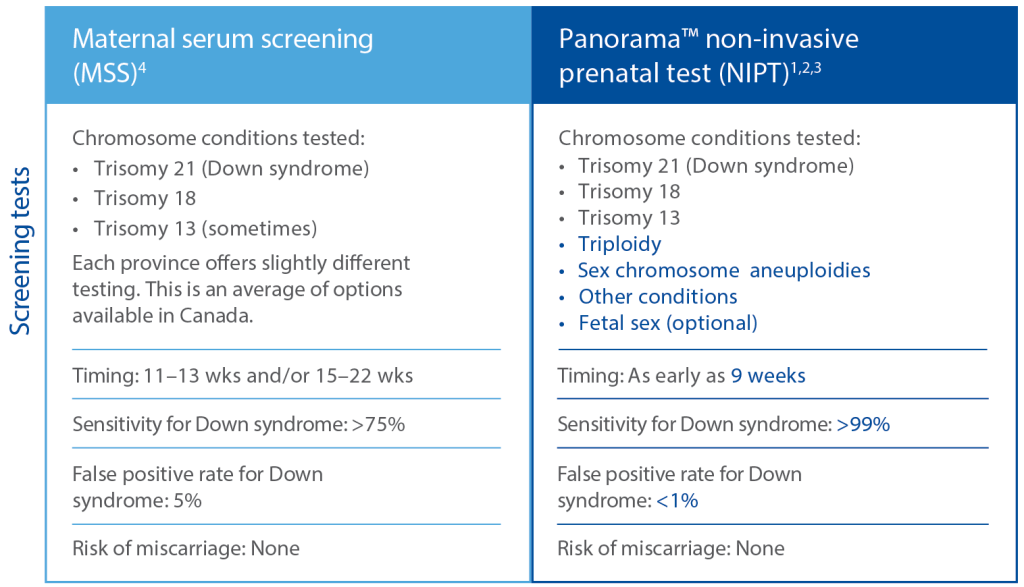Unveiling The Power Of Panorama Prenatal Test: Understanding The Benefits And How It Can Transform Your Pregnancy Journey
What is Panorama Prenatal Test?
Greetings, Happy People! In this article, we will explore the fascinating world of the Panorama Prenatal Test. This revolutionary test has gained popularity in recent years for its ability to detect genetic abnormalities in unborn babies with unprecedented accuracy. So, let’s dive into the details and uncover what exactly the Panorama Prenatal Test is all about.
2 Picture Gallery: Unveiling The Power Of Panorama Prenatal Test: Understanding The Benefits And How It Can Transform Your Pregnancy Journey
Introduction
The Panorama Prenatal Test is a non-invasive genetic screening test that can provide expecting parents with valuable information about their baby’s health and development during pregnancy. By analyzing fetal DNA present in the mother’s blood, this test can detect a wide range of chromosomal abnormalities, including Down syndrome, Edwards syndrome, Patau syndrome, and many others.

Image Source: 5d-dna.hk
The test is performed as early as nine weeks into pregnancy, making it one of the earliest screening options available. It offers a safe and reliable alternative to invasive procedures such as amniocentesis or chorionic villus sampling (CVS), which carry a small risk of miscarriage.
The Panorama Prenatal Test is highly accurate, with a detection rate of over 99% for certain conditions. It can also provide information about the baby’s gender, allowing parents to prepare emotionally and physically for the arrival of their little one.

Image Source: lifelabsgenetics.com
Now, let’s delve deeper into the specific aspects of the Panorama Prenatal Test:
What is Panorama Prenatal Test?
The Panorama Prenatal Test is a non-invasive screening test that analyzes cell-free fetal DNA (cfDNA) in the mother’s blood. During pregnancy, a small amount of the baby’s DNA enters the mother’s bloodstream, allowing for its detection and analysis. This test looks for specific chromosomal abnormalities and can provide parents with important information about their baby’s health.
This test can detect conditions such as trisomy 21 (Down syndrome), trisomy 18 (Edwards syndrome), trisomy 13 (Patau syndrome), as well as several sex chromosome abnormalities. It can also identify certain microdeletion syndromes, offering a comprehensive view of the baby’s genetic profile.
The Panorama Prenatal Test is a safe and reliable screening option, as it carries no risk of miscarriage or harm to the baby. The test can be performed as early as nine weeks into pregnancy, providing parents with valuable information at an early stage.
Who is Panorama Prenatal Test for?
The Panorama Prenatal Test is recommended for all pregnant women, regardless of age or background. It is particularly beneficial for women who have a higher risk of having a baby with chromosomal abnormalities, such as those over the age of 35. However, it is important to note that this test is available to all expectant parents who wish to gain a deeper understanding of their baby’s health and development.
Additionally, the Panorama Prenatal Test is especially valuable for couples who have a family history of genetic disorders or those who have previously had a child with chromosomal abnormalities. By providing early detection and accurate results, the test allows parents to make informed decisions regarding their pregnancy and plan for the future.
When to Take the Panorama Prenatal Test?
The Panorama Prenatal Test can be taken as early as nine weeks into pregnancy, making it one of the earliest screening options available. It is important to note that the test should be performed after a confirmed pregnancy, as it relies on the presence of fetal DNA in the mother’s blood.
Early detection of chromosomal abnormalities allows parents to have more time to make important decisions regarding their pregnancy and seek appropriate medical care if necessary. Therefore, it is recommended to take the test as early as possible, to ensure sufficient time for any follow-up procedures or consultations.
Where Can You Get the Panorama Prenatal Test?
The Panorama Prenatal Test is available in many healthcare facilities, including hospitals, clinics, and specialized prenatal care centers. It is important to consult with your healthcare provider to determine the availability and accessibility of the test in your area.
Your healthcare provider will guide you through the process, explain the test in detail, and address any concerns or questions you may have. They will also discuss the cost of the test and whether it is covered by your insurance plan.
Why Should You Consider the Panorama Prenatal Test?
The Panorama Prenatal Test offers numerous advantages for expectant parents. Firstly, it provides highly accurate results, with a detection rate of over 99% for certain conditions. This accuracy gives parents peace of mind and a clearer understanding of their baby’s health and development.
Furthermore, the test offers early detection, allowing parents to make informed decisions regarding their pregnancy. If a chromosomal abnormality is detected, parents can seek specialized care and support, or they may choose to prepare emotionally and physically for the arrival of a child with specific needs.
Additionally, the Panorama Prenatal Test can determine the baby’s gender, which may be of interest to some parents. This information can help with bonding, planning, and making informed decisions regarding the baby’s future.
How Does the Panorama Prenatal Test Work?
The Panorama Prenatal Test works by analyzing cell-free fetal DNA (cfDNA) in the mother’s blood. After a simple blood draw, the sample is sent to a laboratory where advanced sequencing technology is used to examine the genetic material.
The laboratory technicians analyze the DNA for specific chromosomal abnormalities and microdeletion syndromes. The results are then sent back to the healthcare provider, who will discuss the findings with the parents and provide appropriate guidance and support.
It is important to note that the Panorama Prenatal Test is a screening test, not a diagnostic test. In some cases, further diagnostic testing may be recommended to confirm the results.
Advantages and Disadvantages of the Panorama Prenatal Test
The Panorama Prenatal Test offers several advantages that make it an appealing screening option for expectant parents. Firstly, it is non-invasive, meaning it carries no risk of miscarriage or harm to the baby. This provides parents with peace of mind and reduces potential stress during pregnancy.
The test also provides highly accurate results, allowing parents to make informed decisions regarding their pregnancy and seek appropriate medical care if necessary. Early detection of chromosomal abnormalities can lead to better outcomes for both the baby and the parents.
However, it is important to consider the limitations of the test. The Panorama Prenatal Test is a screening test, not a diagnostic test. This means that while it can detect a wide range of chromosomal abnormalities, it cannot provide a definitive diagnosis. In some cases, further diagnostic testing may be required to confirm the results.
Additionally, it is worth noting that the test may not detect all chromosomal abnormalities or microdeletion syndromes. Although it is highly accurate, there is a small chance of false positive or false negative results. Therefore, it is important to interpret the results in conjunction with clinical evaluation and consult with a healthcare professional.
Frequently Asked Questions (FAQ)
1. Is the Panorama Prenatal Test safe?
Yes, the Panorama Prenatal Test is a safe screening option as it carries no risk of miscarriage or harm to the baby. It is a non-invasive test that analyzes cell-free fetal DNA present in the mother’s blood.
2. How long does it take to receive the results of the Panorama Prenatal Test?
The turnaround time for the Panorama Prenatal Test varies depending on the laboratory and healthcare provider. In general, it takes around one to two weeks to receive the results.
3. Does insurance cover the cost of the Panorama Prenatal Test?
Many insurance plans cover the cost of the Panorama Prenatal Test, but coverage may vary. It is recommended to check with your insurance provider to determine the specific coverage details.
4. Can the Panorama Prenatal Test determine the baby’s paternity?
No, the Panorama Prenatal Test is not designed to determine the baby’s paternity. Its primary purpose is to screen for chromosomal abnormalities and microdeletion syndromes.
5. Can the Panorama Prenatal Test be performed in multiple pregnancies?
Yes, the Panorama Prenatal Test can be performed in multiple pregnancies, such as twins or triplets. However, it is important to consult with your healthcare provider to ensure the accuracy of the results in these cases.
Conclusion
In conclusion, the Panorama Prenatal Test is a groundbreaking genetic screening test that provides valuable information to expectant parents about their baby’s health and development. It is a safe, non-invasive option that can detect a wide range of chromosomal abnormalities with high accuracy.
By offering early detection and reliable results, the Panorama Prenatal Test allows parents to make informed decisions, seek appropriate medical care, and prepare for the arrival of their little one. It provides peace of mind during pregnancy and helps ensure the best possible outcomes for both the baby and the parents.
Final Remarks
It is important to note that the Panorama Prenatal Test should be performed under the guidance of a healthcare professional. The test is a screening tool and should be interpreted in conjunction with clinical evaluation. Any concerns or questions should be discussed with a qualified healthcare provider.
Remember, the Panorama Prenatal Test is a powerful tool that can provide valuable insights into your baby’s health. It is always recommended to consult with a healthcare professional to determine the best screening options for your specific situation.
This post topic: Panorama



